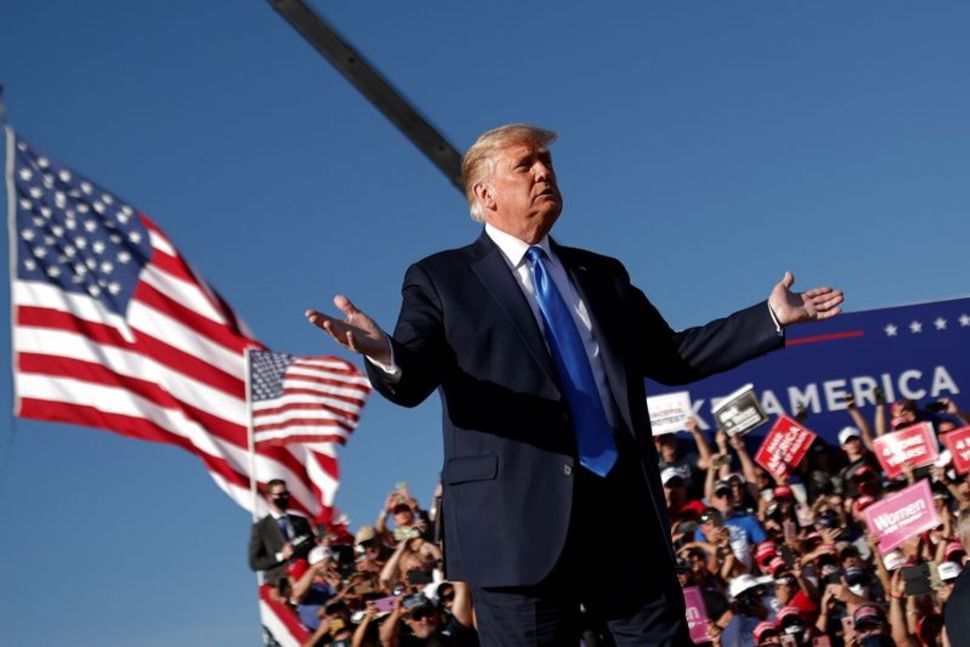Expectedly, in a democracy, the focus of the Democratic Party in the US has been on the Republican Party, in particular those in thrall to President Donald J. Trump. In India the situation is no different. The party in opposition blames the party in power even for the weather, while the latter reciprocates once it is in opposition. What gets missed out in such mutual name calling is the reality that groups outside the matrix of democratic politics—and not necessarily internal to the country—have both an interest in violence and anarchy in their targets, and often have the capability to bring chaos about. The United States is no stranger to the witnessing of, the encouragement of and participation in attempts at regime change through the streets. The manner in which the status quo in much of the Arab world was demolished in street protests erupting in 2011 was cheered on by the US and much of Europe as a flowering of democracy from the muddy fields of oppression. Those who warned about the aftermath of such events were dismissed as complicit in the authoritarianism that was under siege. Will David Cameron, Nicolas Sarkozy and Hillary Clinton, the three who backed for example the insurrection against Muammar Gaddafi in Libya admit that the situation in that country is much worse than it ever was under the dictator? Or that the chaos and the breakup of Syria has created a humanitarian catastrophe? President Bashar Assad of Syria is no saint, but he was moving towards economic liberalisation and a slow progression in the rights of the people he ruled when groups were armed and let loose against his forces. The resulting conflict has devastated Syria and forced millions of its people to seek refuge anywhere but preferably in Europe, to which they have sought to go in the millions. Among the reasons why NATO is so conciliatory to President Erdogan in Turkey despite his having joined hands with Beijing and abandoning Washington is that he can ensure a flood of refugees into Europe should he decide. All that is needed to be done by Erdogan is to open the doors to such migration, a power available to the President of Mexico as well, but not ever leveraged by President Obrador, who has shown his respect for international norms. What took place in Washington is similar to events that took place in other locations, except that in the case of these, the same individuals who are condemning the mobs for their unforgivable assault on the US Capitol cheered on those who stormed other legislatures. It is pertinent to remember the backing given to President Yeltsin in Moscow when he ordered tanks to fire on the Parliament building. After that show of force backed by several powerful countries, Yeltsin ceased to have problems with Parliament.
Both Russia and the PRC, now allied against US primacy and seeking to replace it, have leaderships that have made a careful study of manifestations of street protests and violence across the world. They have devoted particular attention to what took place in their own countries, and in the role of external actors in fanning the flames. The PRC in particular is advertising its system of governance as superior to the model in use in the US in particular and India prominently. General Secretary Xi Jinping is pointing to the relative success of his country in handling the pandemic which travelled across the world from Wuhan. At the G-20 meeting, the PRC is likely to be the only country that records growth even during the pandemic in its full fury. RT, the carefully scripted international voice of the Russian republic, has devoted substantial time to going over the details of what took place at the US Capitol when pro-Trump mobs trashed the seat of democratic power in what is still the most consequential country in the world. The action of the mob was indefensible and the manner in which security agencies slept at the wheel was equally unforgivable. Social media stirrings of what took place during that day of shame showed clearly the progress being made in motivating people to come to Washington and register their protest in person to the legislators by entering the Capitol. What were the forces giving booster doses of toxicity? Who failed to secure the Capitol and why? That the mob was allowed to march into the building rather than held back by barricades testifies to complicity and not simply incompetence. Among the different actors active in fanning the fire of rebellion against the lawful procedure followed for election of the 46th President of the United States need to be identified. In their rush to judgement, Senator Schumer and Speaker Pelosi have concentrated on President Trump and him alone as the cause of the storming of the building where the legislative branch of the government operates. In doing so, they may be missing out on other players who made use of the stupidity of several individuals who refused to accept reality and persisted in spreading a perception among tens of millions of armed citizens that the election was stolen because their champion lost. Trump has been less an agent then a dupe of forces who made use of his personality traits to conjure up furies to weaken US society. The explosion of violence that discredited the US shows that country is itself vulnerable to the manipulations of external forces much as its own targets among the regimes of the world were in the past. By trying to make Donald J. Trump the sole cause of the violence that erupted that night, Senator Schumer and Speaker Pelosi may be making an error harmful to US security interests.
Hidden hand of anarchy
- Advertisement -

